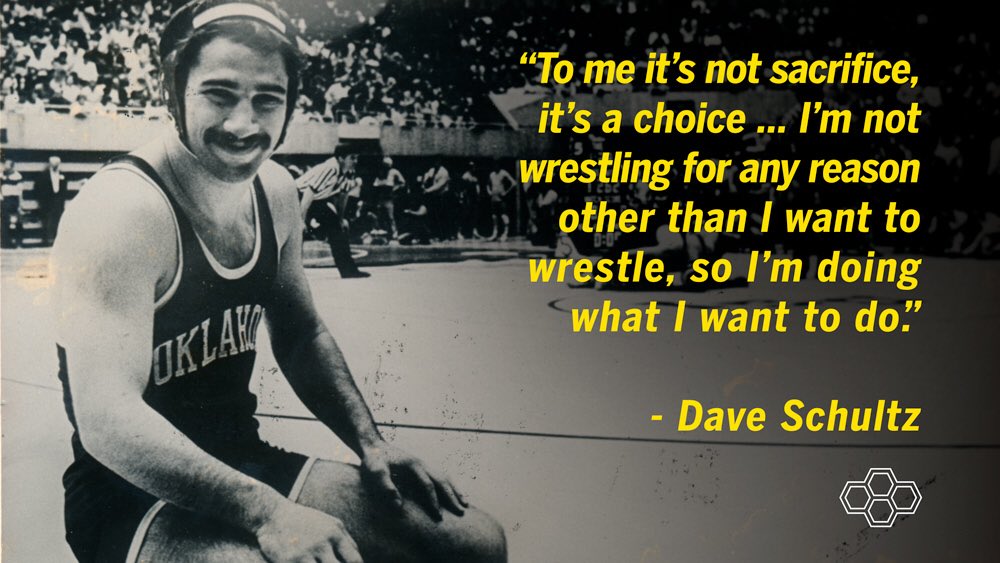By Mark Ellis –
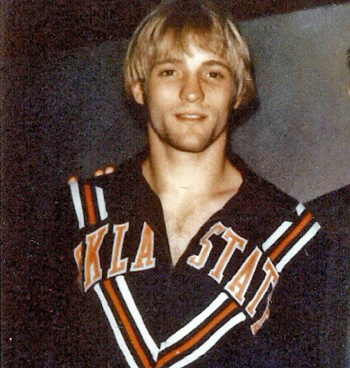
He had more moves than an octopus, won his state wrestling championship in high school, then became the best nationally as he wrestled for Oklahoma State. But after reaching the pinnacle of the sport, he recognized athletic glory is fleeting and found a higher purpose in life.
Stephen Barrett grew up in a Christian home and always loved sports. As a youngster, he realized he wasn’t cut out for basketball. Wrestling around the house with his older brother he had more than a few collisions with coffee tables, earning stitches and his brother’s grudging respect for his tenacity.
His family moved from Massachusetts to Southern California in his freshman year of high school and, heeding his brother’s advice, he decided to go out for wrestling. “I had only been wrestling two weeks when the varsity guy got sick, the J.V. guy got hurt, and I had to wrestle for the team,” Barrett recounts. “My first match was against the league champion.”
His coach at Miraleste High School, Duffy Brelsford, had simple instructions: “Don’t get pinned.”
“I followed his instructions carefully for 52 seconds,” Barrett laughs. “That’s when I got pinned.”
In his senior year, the state of California held their first state wrestling championship. Barrett and another member of his team, John Jackson, both placed first in their respective weight classes out of 800 schools, a remarkable achievement for a small high school with 900 students.
When Barrett looked at colleges, it wasn’t difficult for him to make a choice. Oklahoma State University (OSU) had already won 27 national team tournaments in wrestling and established a dynasty in the sport.
OSU was a great fit for an 18-year-old driven to be number one. “I wanted to be the national champion,” Barrett recalls. “I knew Oklahoma State would give me the best chance of reaching that goal.”
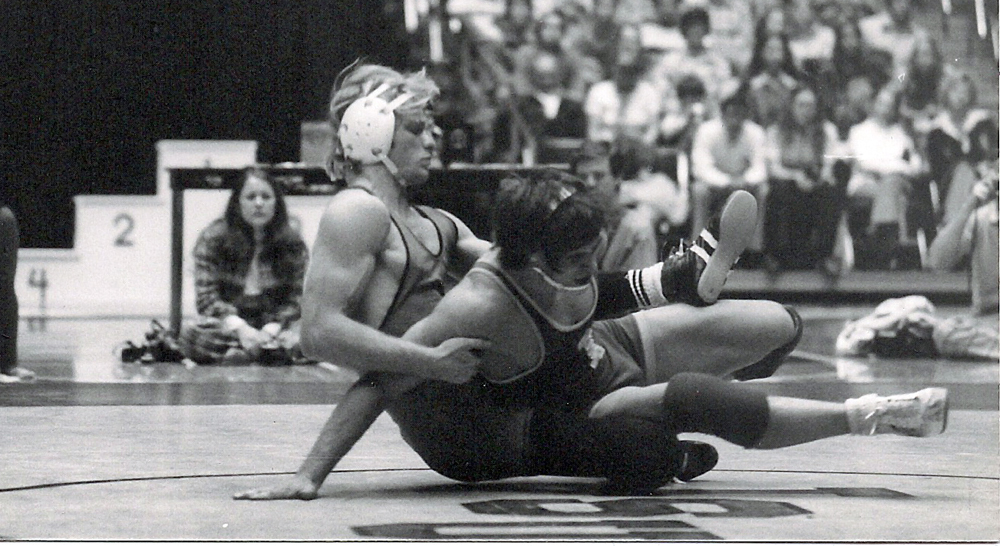
In his junior year at OSU he placed third nationally, which was strangely disappointing to the intensely competitive athlete. “I had been undefeated all year, ranked first all year long. In the quarterfinals I lost to an unseeded guy.”
After he received the award for third place, he found a quiet corner and cried.
But the following year he redoubled his efforts and made it to the finals. “I wanted that more than anything else in the world. If somebody offered me a million dollars to lose I wouldn’t take it,” he says.
His senior year he fulfilled his fondest dream, becoming the NCAA Division I Champion in 1977.
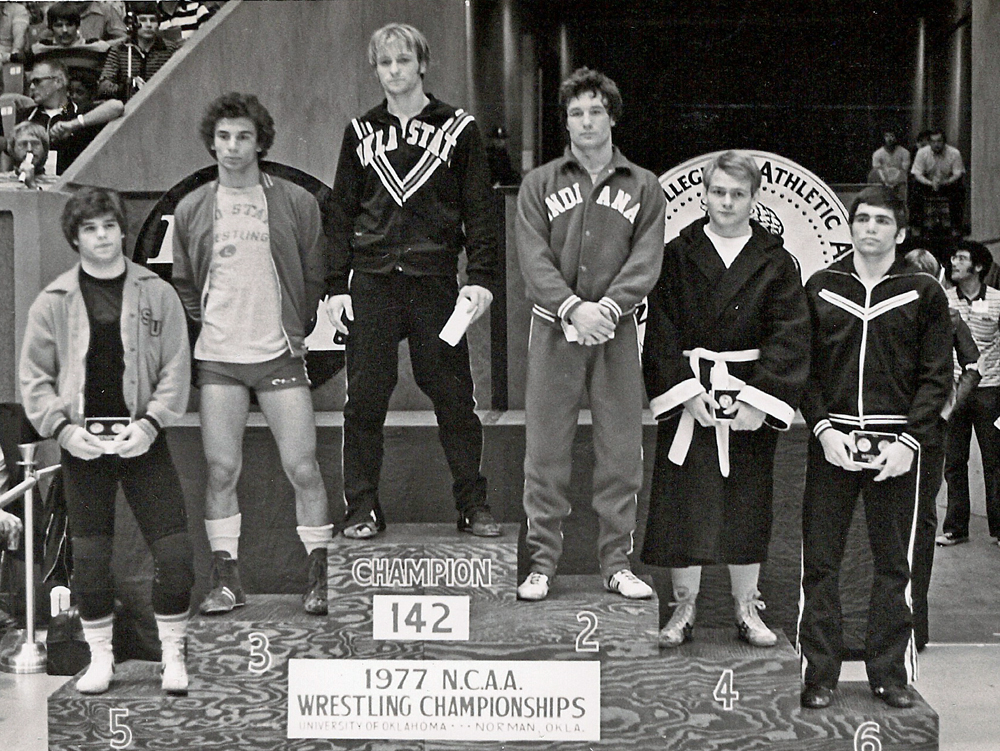
Barrett thought if he won, it would make him happy the rest of his life. “I won, but I didn’t get the satisfaction I thought,” he says.
How could he possibly be unfulfilled after such a crowning achievement?
As he reflected on the real purpose of life, he recognized his goal in wrestling was to glorify himself. He came to the conclusion, “that didn’t work.” He began to reexamine his spiritual walk with God.
Barrett attended grad school at OSU and earned a scholarship as the graduate assistant wrestling coach.
Wrestling Dave Schultz
That year, OSU got a prized recruit from California named Dave Schultz, who later became an Olympic champion. In his senior year of high school, Schultz had already beaten two-time NCAA champion Chuck Yagla at the Great Plains Championships.
“Every school in the nation wanted him. As assistant coach, I started wrestling with Dave every day in practice,” Barrett recalls.
In mid November, the coach held an “Orange and Black Match” to determine the varsity roster. “Dave didn’t have a worthy challenger, so the coach wanted me to wrestle Dave. He knew if I wrestled Dave, more people would come to watch.”
Barrett was less than enthused about the exhibition. “I had an unusual, unorthodox style and did some things Dave had never seen,” he recounts. “But after two and a half months of training together we had no more secrets. I showed him my secrets and how to defend against them. He was two weight classes heavier than me — bigger and stronger.”
Barrett’s protest to his coach fell on deaf ears. “I have your scholarship in my back pocket,” he said. “You have to wrestle Dave.”
“At Oklahoma State if you’re a winner they love you. If you’re a loser, they don’t like you as much,” Barrett explains. “My fans loved me. I lost a couple matches early on in college, but after that, I never lost. My fans gave me a standing ovation when I went out there.”
In the match with Schultz, the younger wrestler got the first take down, earning two points. Some in the crowd began cheering for Schultz. Then Schultz got a few more points.
“By the third period the crowd was solidly behind Dave,” Barrett recalls. “I got a hold of his leg, pulling so hard to take him down, I broke my own rib. The ref stopped the match and people started booing me now. Dave won 7-2. I never heard that much noise in Gallagher Hall. The crowd went crazy.”
Their coach picked up Schultz on his shoulders and paraded him around the floor. “I really thought the crowd loved me. But it was that night I realized the crowd really didn’t love me, they had a new hero, a guy who would wrestle for the next four years. He was the one they were rooting for now.”
Barrett had come face-to-face with the transitory nature of athletic fame.
He began to reflect again on his purpose in life. “I was tired of wrestling for myself, because my victories didn’t’ bring me what I thought they would, the happiness and fulfillment I thought. I was tired of wrestling for the crowd. There was no better group of folks in the world, the Oklahoma State fans, but it turned out they really didn’t love me,” he decided.
While Barrett believed in God, he had never surrendered everything in his life to Jesus. “There was never a time I didn’t believe in God or believe in Jesus or want him as my Savior.”
“That night I decided I will continue wrestling, but I wouldn’t do it for myself or the crowd, but for God.” He re-dedicated his life to Jesus Christ – including his future in wrestling – and decided he would give God all the glory for any future victories.
Shortly after that, Barrett had a meeting with wrestlers associated with Athletes in Action (AIA), the athletic extension of Campus Crusade for Christ. They asked him if he would consider joining their team. “With AIA, you are a missionary for Jesus through the platform of sports,” he says.
“I was a long way from missionary material at that time,” he admits, “because I didn’t like to get up and talk in front of groups.”
He sought God’s will with his wife Cindi. The two met at OSU and married in Barrett’s senior year. He decided to join AIA, with the condition that he wouldn’t have to speak.
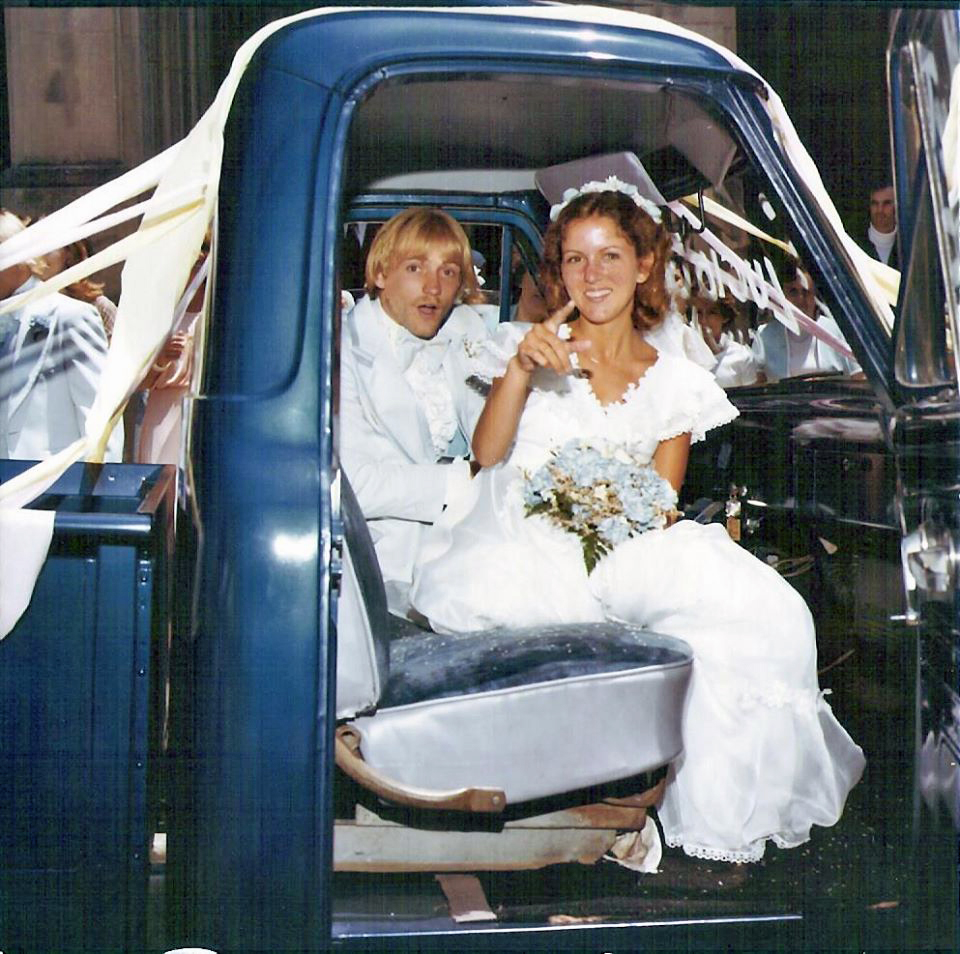
“You just wrestle the best you can and we’ll help you with the speaking part,” they told him.
As part of AIA, his teams conducted training camps in Hungary, Czechoslovakia, Romania, and other Eastern Bloc countries. “One time we were able to sneak some small Russian New Testaments that we gave to the Russian wrestlers,” he recounts.
Barrett tried out for the Olympic team in 1980 and won the first qualifying event at 149.5 pounds. But when President Carter pulled the U.S. from the Games after the Soviets invaded Afghanistan, Barrett left the Olympic trials.
In 1981 he joined the AIA camp in Vienna, Austria, under the coaching of 1976 Olympic champion John Peterson. They wrestled in a dozen major tournaments in Eastern European countries. Barrett won eight of the tournaments and finished second in two others.
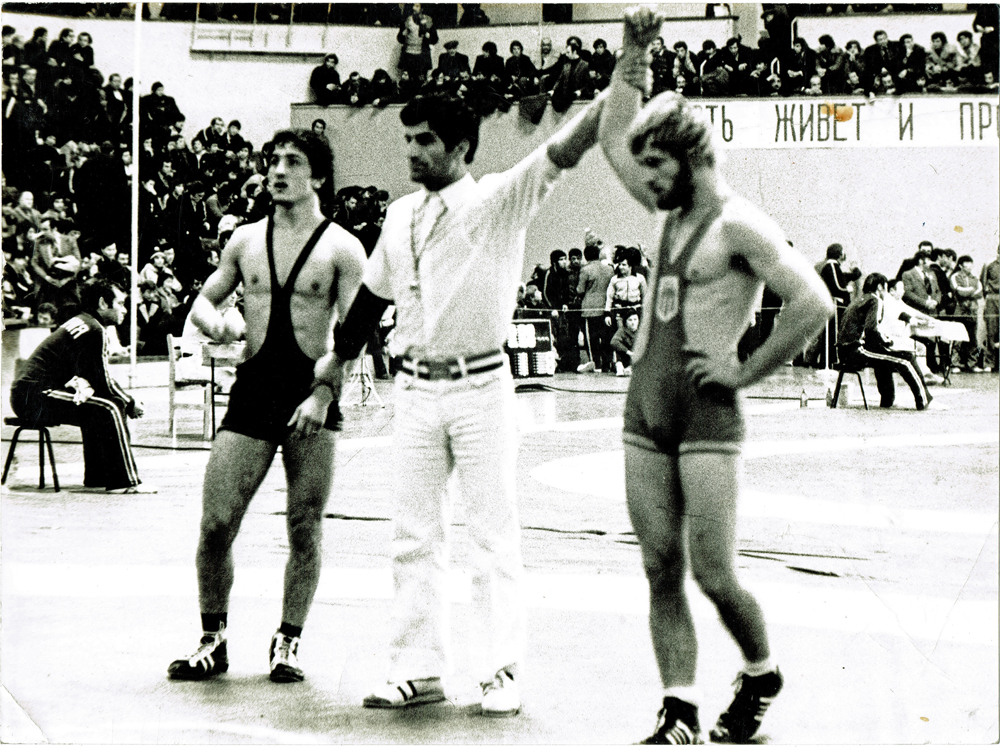
He retired from wrestling in 1985. He and his wife moved to a 160-acre farm once owned by his grandfather outside Knob Noster, Missouri, where they grew corn, soybeans, and wheat.
But after five years of farming, they answered the call of missions once again. As the Soviet Union broke apart, unprecedented opportunities for the gospel emerged in Russia. “It was an amazing time,” Barrett recalls. “We would go to a random school, introduce ourselves and share about Jesus, knowing God, and salvation.” They had God’s wind of revival at their backs, with doors opening right and left.
Based in Moscow, they developed a special focus on the Republic of Kabardino Balkaria in the North Caucasus. “The wrestlers there come from small minority ethnic groups and look Asian. They love wrestling and the area produces tough guys,” he notes.
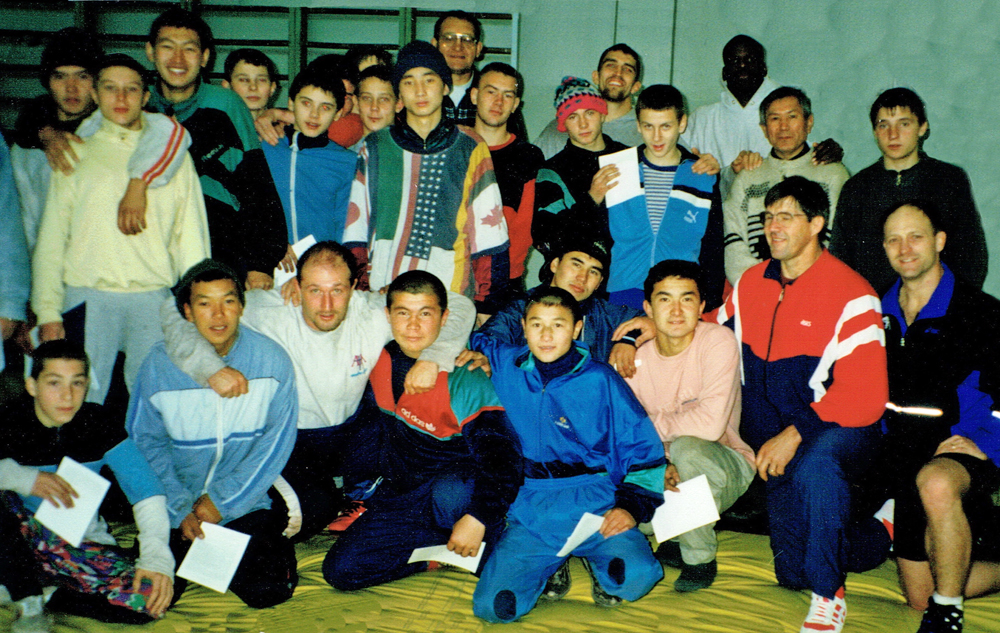
After their daughters left for college, the Barretts and another couple moved to Balkaria. They planted seeds for the gospel and discovered the challenges of reaching Muslims for Christ. “The Chechen war still going on when we moved down there. They said their population was one-half of what it was by the time the war ended.”
“We spent a lot of time with Chechen kids and introduced a lot of them to Jesus,” Barrett says. “God is working in the Muslim world. I hope there is a lifting of the curtain to the Chechen people.”
After 16 years in Russia, Barrett began to get pushback from the authorities. He was picked up and taken to court several times by the KGB (now FSB), and charged with minor violations. One night they came to his house and arrested him at 10 pm.
One local news source said Barrett was providing information to the CIA, another article said he worked with a Christian Protestant organization and had been proselytizing, which was closer to the truth.
On a return trip from Tbilisi, Georgia, the KGB detained Barrett for three days at the airport. “They put me on a plane to Turkey and that was it. I was deported suddenly.”
Cindi remained behind to sell their apartment, their furniture, and other belongings in the next few weeks. Then she flew home.
But they grew restless on the farm and God led them to Mongolia in 2010, where they stayed five years. “It was refreshing to be somewhere people really want the gospel,” he says.
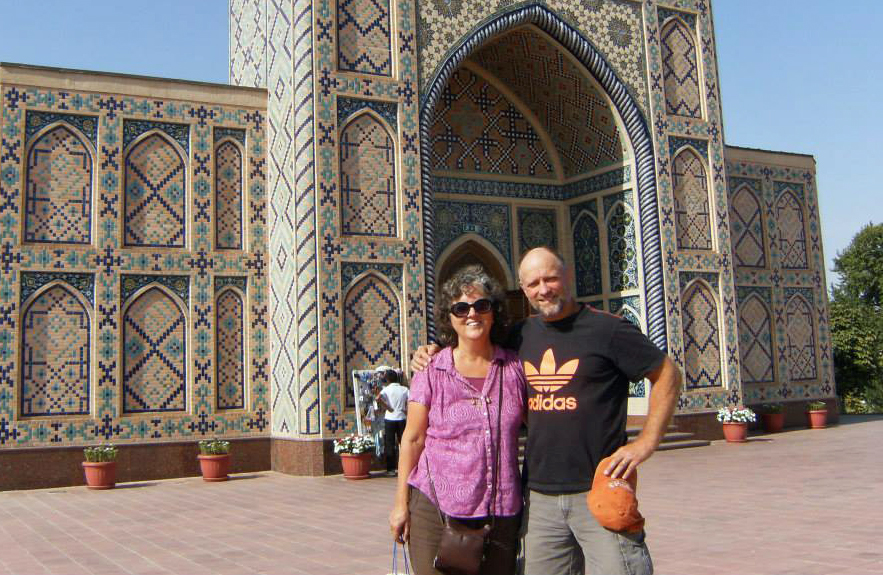
They have been on their farm in Knob Noster the last four years, but still do regular mission trips to Eastern Europe with AIA, teach Bible studies, and Steve helps at the University of Central Missouri with the Fellowship of Christian Athletes.
If you want to know more about a personal relationship with God, go here

